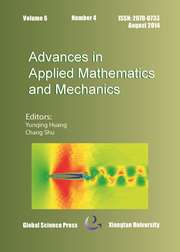Article contents
Numerical Optimization and Noise Analysis of High-Tip-Speed Wind Turbine
Published online by Cambridge University Press: 28 November 2017
Abstract
With lower turbulence and less rigorous restrictions on noise levels, offshore wind farms provide favourable conditions for the development of high-tip-speed wind turbines. In this study, the multi-objective optimization is presented for a 5MW wind turbine design and the effects of high tip speed on power output, cost and noise are analysed. In order to improve the convergence and efficiency of optimization, a novel type of gradient-based multi-objective evolutionary algorithm is proposed based on uniform decomposition and differential evolution. Optimization examples of the wind turbines indicate that the new algorithm can obtain uniformly distributed optimal solutions and this algorithm outperforms the conventional evolutionary algorithms in convergence and optimization efficiency. For the 5MW wind turbines designed, increasing the tip speed can greatly reduce the cost of energy (COE). When the tip speed increases from 80m/s to 100m/s, under the same annual energy production, the COE decreases by 3.2% in a class I wind farm and by 5.1% in a class III one, respectively, while the sound pressure level increases by a maximum of 4.4dB with the class III wind farm case.
Information
- Type
- Research Article
- Information
- Advances in Applied Mathematics and Mechanics , Volume 9 , Issue 6 , December 2017 , pp. 1461 - 1484
- Copyright
- Copyright © Global-Science Press 2017
References
- 5
- Cited by

